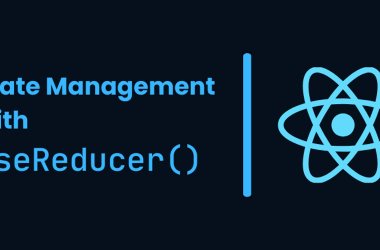Learning Objectives
By the end of this module, you will:
- Master Bazel’s testing framework and test execution
- Implement comprehensive unit, integration, and end-to-end testing
- Configure test sharding, parallelization, and coverage reporting
- Set up continuous integration with quality gates
- Build a robust testing pipeline for production-ready applications
3.1 Bazel Testing Fundamentals
Understanding Bazel Test Rules
Bazel provides several test rules for Python:
-
py_test: Basic Python test execution -
py_pytest: Advanced testing with pytest integration -
py_test_suite: Grouping multiple tests
Basic Test Structure
# BUILD file
load("@rules_python//python:defs.bzl", "py_test", "py_library")
py_library(
name = "calculator",
srcs = ["calculator.py"],
visibility = ["//visibility:public"],
)
py_test(
name = "calculator_test",
srcs = ["calculator_test.py"],
deps = [":calculator"],
python_version = "PY3",
)
# calculator.py
class Calculator:
def add(self, a: int, b: int) -> int:
return a + b
def subtract(self, a: int, b: int) -> int:
return a - b
def multiply(self, a: int, b: int) -> int:
return a * b
def divide(self, a: int, b: int) -> float:
if b == 0:
raise ValueError("Cannot divide by zero")
return a / b
# calculator_test.py
import unittest
from calculator import Calculator
class TestCalculator(unittest.TestCase):
def setUp(self):
self.calc = Calculator()
def test_add(self):
self.assertEqual(self.calc.add(2, 3), 5)
self.assertEqual(self.calc.add(-1, 1), 0)
def test_subtract(self):
self.assertEqual(self.calc.subtract(5, 3), 2)
self.assertEqual(self.calc.subtract(1, 1), 0)
def test_multiply(self):
self.assertEqual(self.calc.multiply(3, 4), 12)
self.assertEqual(self.calc.multiply(0, 5), 0)
def test_divide(self):
self.assertEqual(self.calc.divide(10, 2), 5.0)
with self.assertRaises(ValueError):
self.calc.divide(5, 0)
if __name__ == '__main__':
unittest.main()
3.2 Advanced Testing with pytest
Setting up pytest with Bazel
# WORKSPACE file additions
load("@bazel_tools//tools/build_defs/repo:http.bzl", "http_archive")
# pytest integration
http_archive(
name = "rules_python_pytest",
sha256 = "...",
urls = ["..."],
)
load("@rules_python_pytest//:repositories.bzl", "rules_python_pytest_dependencies")
rules_python_pytest_dependencies()
pytest Configuration
# BUILD file
load("@rules_python//python:defs.bzl", "py_test")
load("@rules_python_pytest//python:pytest.bzl", "py_pytest_test")
py_pytest_test(
name = "advanced_calculator_test",
srcs = ["advanced_calculator_test.py"],
deps = [
":calculator",
"@pip//pytest",
"@pip//pytest-cov",
"@pip//pytest-mock",
],
args = [
"--verbose",
"--tb=short",
"--cov=calculator",
"--cov-report=term-missing",
],
)
# advanced_calculator_test.py
import pytest
from unittest.mock import Mock, patch
from calculator import Calculator
class TestAdvancedCalculator:
@pytest.fixture
def calculator(self):
return Calculator()
@pytest.mark.parametrize("a,b,expected", [
(2, 3, 5),
(-1, 1, 0),
(0, 0, 0),
(100, -50, 50),
])
def test_add_parametrized(self, calculator, a, b, expected):
assert calculator.add(a, b) == expected
@pytest.mark.parametrize("a,b,expected", [
(10, 2, 5.0),
(9, 3, 3.0),
(1, 2, 0.5),
])
def test_divide_parametrized(self, calculator, a, b, expected):
assert calculator.divide(a, b) == expected
def test_divide_by_zero_exception(self, calculator):
with pytest.raises(ValueError, match="Cannot divide by zero"):
calculator.divide(5, 0)
@patch('calculator.Calculator.add')
def test_add_mocked(self, mock_add, calculator):
mock_add.return_value = 42
result = calculator.add(1, 2)
mock_add.assert_called_once_with(1, 2)
assert result == 42
3.3 Test Organization and Structure
Test Suites and Categories
# BUILD file
load("@rules_python//python:defs.bzl", "py_test")
# Unit tests
py_test(
name = "unit_tests",
srcs = glob(["*_unit_test.py"]),
deps = [
"//src:core_library",
"@pip//pytest",
],
size = "small",
tags = ["unit"],
)
# Integration tests
py_test(
name = "integration_tests",
srcs = glob(["*_integration_test.py"]),
deps = [
"//src:core_library",
"//src:database",
"@pip//pytest",
"@pip//testcontainers",
],
size = "medium",
tags = ["integration"],
data = ["//testdata:sample_data"],
)
# End-to-end tests
py_test(
name = "e2e_tests",
srcs = glob(["*_e2e_test.py"]),
deps = [
"//src:application",
"@pip//selenium",
"@pip//pytest",
],
size = "large",
tags = ["e2e"],
timeout = "long",
)
# Test suite combining all tests
test_suite(
name = "all_tests",
tests = [
":unit_tests",
":integration_tests",
":e2e_tests",
],
)
Test Data Management
# BUILD file for test data
filegroup(
name = "test_fixtures",
srcs = glob(["fixtures/**/*.json"]),
visibility = ["//tests:__subpackages__"],
)
filegroup(
name = "sample_database",
srcs = ["sample.db"],
visibility = ["//tests:__subpackages__"],
)
3.4 Test Coverage and Quality Metrics
Coverage Configuration
# .coveragerc
[run]
source = src/
omit =
*/tests/*
*/test_*
setup.py
*/__pycache__/*
[report]
exclude_lines =
pragma: no cover
def __repr__
raise AssertionError
raise NotImplementedError
[html]
directory = coverage_html_report
Bazel Coverage Integration
# BUILD file
py_test(
name = "coverage_test",
srcs = ["test_coverage.py"],
deps = [
"//src:main_library",
"@pip//coverage",
"@pip//pytest",
"@pip//pytest-cov",
],
args = [
"--cov=src",
"--cov-report=xml:coverage.xml",
"--cov-report=html:htmlcov",
"--cov-fail-under=80",
],
)
3.5 Test Sharding and Parallelization
Sharding Configuration
# BUILD file
py_test(
name = "large_test_suite",
srcs = ["large_test_suite.py"],
deps = [":test_dependencies"],
shard_count = 4, # Split test into 4 shards
size = "large",
)
# Custom sharding strategy
py_test(
name = "custom_sharded_test",
srcs = ["custom_test.py"],
deps = [":dependencies"],
env = {
"TEST_TOTAL_SHARDS": "$(TEST_TOTAL_SHARDS)",
"TEST_SHARD_INDEX": "$(TEST_SHARD_INDEX)",
},
)
Parallel Test Execution
# Run tests in parallel
bazel test //tests/... --jobs=8 --test_output=errors
# Run with specific test strategy
bazel test //tests/... --test_strategy=standalone --jobs=auto
3.6 Integration Testing Patterns
Database Integration Tests
# database_integration_test.py
import pytest
import testcontainers.postgres
from sqlalchemy import create_engine
from src.database import DatabaseManager
class TestDatabaseIntegration:
@pytest.fixture(scope="class")
def postgres_container(self):
with testcontainers.postgres.PostgresContainer() as postgres:
yield postgres
@pytest.fixture
def db_manager(self, postgres_container):
connection_url = postgres_container.get_connection_url()
engine = create_engine(connection_url)
return DatabaseManager(engine)
def test_user_creation(self, db_manager):
user_id = db_manager.create_user("test@example.com", "Test User")
assert user_id is not None
user = db_manager.get_user(user_id)
assert user.email == "test@example.com"
assert user.name == "Test User"
def test_user_deletion(self, db_manager):
user_id = db_manager.create_user("delete@example.com", "Delete User")
assert db_manager.delete_user(user_id) is True
assert db_manager.get_user(user_id) is None
API Integration Tests
# api_integration_test.py
import pytest
import requests
from src.api import create_app
class TestAPIIntegration:
@pytest.fixture(scope="class")
def app(self):
app = create_app(testing=True)
with app.test_client() as client:
yield client
def test_health_endpoint(self, app):
response = app.get('/health')
assert response.status_code == 200
assert response.json['status'] == 'healthy'
def test_user_crud_operations(self, app):
# Create user
user_data = {'name': 'Test User', 'email': 'test@example.com'}
response = app.post('/api/users', json=user_data)
assert response.status_code == 201
user_id = response.json['id']
# Get user
response = app.get(f'/api/users/{user_id}')
assert response.status_code == 200
assert response.json['name'] == 'Test User'
# Update user
updated_data = {'name': 'Updated User'}
response = app.put(f'/api/users/{user_id}', json=updated_data)
assert response.status_code == 200
# Delete user
response = app.delete(f'/api/users/{user_id}')
assert response.status_code == 204
3.7 End-to-End Testing
Selenium E2E Tests
# e2e_web_test.py
import pytest
from selenium import webdriver
from selenium.webdriver.common.by import By
from selenium.webdriver.support.ui import WebDriverWait
from selenium.webdriver.support import expected_conditions as EC
class TestWebApplicationE2E:
@pytest.fixture(scope="class")
def driver(self):
options = webdriver.ChromeOptions()
options.add_argument("--headless")
options.add_argument("--no-sandbox")
options.add_argument("--disable-dev-shm-usage")
driver = webdriver.Chrome(options=options)
driver.implicitly_wait(10)
yield driver
driver.quit()
def test_user_registration_flow(self, driver):
driver.get("http://localhost:8080/register")
# Fill registration form
driver.find_element(By.ID, "name").send_keys("Test User")
driver.find_element(By.ID, "email").send_keys("test@example.com")
driver.find_element(By.ID, "password").send_keys("password123")
# Submit form
driver.find_element(By.ID, "submit").click()
# Wait for success message
wait = WebDriverWait(driver, 10)
success_message = wait.until(
EC.presence_of_element_located((By.CLASS_NAME, "success"))
)
assert "Registration successful" in success_message.text
def test_login_flow(self, driver):
driver.get("http://localhost:8080/login")
driver.find_element(By.ID, "email").send_keys("test@example.com")
driver.find_element(By.ID, "password").send_keys("password123")
driver.find_element(By.ID, "login").click()
# Verify redirect to dashboard
wait = WebDriverWait(driver, 10)
wait.until(EC.url_contains("/dashboard"))
assert "/dashboard" in driver.current_url
3.8 Test Configuration and Environment Management
Test Environment Configuration
# test_config.py
import os
from dataclasses import dataclass
@dataclass
class TestConfig:
database_url: str = "sqlite:///:memory:"
redis_url: str = "redis://localhost:6380"
api_base_url: str = "http://localhost:8080"
test_data_dir: str = "testdata"
@classmethod
def from_env(cls):
return cls(
database_url=os.getenv("TEST_DATABASE_URL", cls.database_url),
redis_url=os.getenv("TEST_REDIS_URL", cls.redis_url),
api_base_url=os.getenv("TEST_API_BASE_URL", cls.api_base_url),
test_data_dir=os.getenv("TEST_DATA_DIR", cls.test_data_dir),
)
pytest Configuration
# conftest.py
import pytest
import tempfile
import shutil
from test_config import TestConfig
@pytest.fixture(scope="session")
def test_config():
return TestConfig.from_env()
@pytest.fixture
def temp_dir():
temp_dir = tempfile.mkdtemp()
yield temp_dir
shutil.rmtree(temp_dir)
@pytest.fixture(autouse=True)
def setup_test_environment(test_config):
# Setup code before each test
yield
# Teardown code after each test
3.9 Continuous Integration Integration
GitHub Actions with Bazel
# .github/workflows/test.yml
name: Test Suite
on:
push:
branches: [ main, develop ]
pull_request:
branches: [ main ]
jobs:
test:
runs-on: ubuntu-latest
strategy:
matrix:
python-version: [3.8, 3.9, 3.10, 3.11]
steps:
- uses: actions/checkout@v3
- name: Setup Bazel
uses: bazelbuild/setup-bazelisk@v2
- name: Cache Bazel
uses: actions/cache@v3
with:
path: ~/.cache/bazel
key: ${{ runner.os }}-bazel-${{ hashFiles('**/BUILD', '**/WORKSPACE') }}
restore-keys: |
${{ runner.os }}-bazel-
- name: Run unit tests
run: |
bazel test //tests:unit_tests --test_output=errors --test_summary=detailed
- name: Run integration tests
run: |
bazel test //tests:integration_tests --test_output=errors
- name: Generate coverage report
run: |
bazel coverage //tests:all_tests --combined_report=lcov
- name: Upload coverage to Codecov
uses: codecov/codecov-action@v3
with:
file: ./bazel-out/_coverage/_coverage_report.dat
- name: Run E2E tests
run: |
bazel test //tests:e2e_tests --test_output=streamed
if: github.event_name == 'push' && github.ref == 'refs/heads/main'
3.10 Quality Gates and Metrics
Quality Gate Configuration
# BUILD file
load("@rules_python//python:defs.bzl", "py_test")
py_test(
name = "quality_gates",
srcs = ["quality_gates_test.py"],
deps = [
"//src:all_modules",
"@pip//pytest",
"@pip//pytest-cov",
"@pip//flake8",
"@pip//mypy",
"@pip//black",
],
args = [
"--cov=src",
"--cov-fail-under=80",
"--flake8",
"--mypy",
"--black-check",
],
tags = ["quality"],
)
Performance Testing
# performance_test.py
import pytest
import time
from src.calculator import Calculator
class TestPerformance:
def test_calculation_performance(self):
calc = Calculator()
start_time = time.time()
for i in range(10000):
calc.add(i, i + 1)
end_time = time.time()
execution_time = end_time - start_time
assert execution_time < 1.0, f"Performance test failed: {execution_time}s"
@pytest.mark.benchmark
def test_benchmark_operations(self, benchmark):
calc = Calculator()
result = benchmark(calc.multiply, 123, 456)
assert result == 56088
3.11 Test Reporting and Analytics
Custom Test Reporter
# test_reporter.py
import json
import sys
from datetime import datetime
class TestReporter:
def __init__(self):
self.results = {
'timestamp': datetime.utcnow().isoformat(),
'tests': [],
'summary': {
'total': 0,
'passed': 0,
'failed': 0,
'skipped': 0
}
}
def add_test_result(self, test_name, status, duration, error=None):
self.results['tests'].append({
'name': test_name,
'status': status,
'duration': duration,
'error': error
})
self.results['summary']['total'] += 1
self.results['summary'][status] += 1
def generate_report(self, output_file='test_report.json'):
with open(output_file, 'w') as f:
json.dump(self.results, f, indent=2)
print(f"Test Report Generated: {output_file}")
print(f"Total: {self.results['summary']['total']}")
print(f"Passed: {self.results['summary']['passed']}")
print(f"Failed: {self.results['summary']['failed']}")
print(f"Skipped: {self.results['summary']['skipped']}")
3.12 Best Practices and Advanced Patterns
Test Utilities and Helpers
# test_utils.py
import functools
import time
from typing import Callable, Any
def retry(max_attempts: int = 3, delay: float = 1.0):
"""Decorator to retry flaky tests"""
def decorator(func: Callable) -> Callable:
@functools.wraps(func)
def wrapper(*args, **kwargs) -> Any:
last_exception = None
for attempt in range(max_attempts):
try:
return func(*args, **kwargs)
except Exception as e:
last_exception = e
if attempt < max_attempts - 1:
time.sleep(delay)
continue
raise last_exception
return wrapper
return decorator
def timeout(seconds: int):
"""Decorator to add timeout to tests"""
def decorator(func: Callable) -> Callable:
@functools.wraps(func)
def wrapper(*args, **kwargs) -> Any:
import signal
def timeout_handler(signum, frame):
raise TimeoutError(f"Test timed out after {seconds} seconds")
signal.signal(signal.SIGALRM, timeout_handler)
signal.alarm(seconds)
try:
return func(*args, **kwargs)
finally:
signal.alarm(0)
return wrapper
return decorator
Test Data Factories
# test_factories.py
import factory
from datetime import datetime, timedelta
from src.models import User, Product, Order
class UserFactory(factory.Factory):
class Meta:
model = User
id = factory.Sequence(lambda n: n)
name = factory.Faker('name')
email = factory.Faker('email')
created_at = factory.LazyFunction(datetime.utcnow)
is_active = True
class ProductFactory(factory.Factory):
class Meta:
model = Product
id = factory.Sequence(lambda n: n)
name = factory.Faker('word')
price = factory.Faker('pydecimal', left_digits=3, right_digits=2, positive=True)
description = factory.Faker('text', max_nb_chars=200)
class OrderFactory(factory.Factory):
class Meta:
model = Order
id = factory.Sequence(lambda n: n)
user = factory.SubFactory(UserFactory)
products = factory.List([factory.SubFactory(ProductFactory) for _ in range(3)])
total_amount = factory.LazyAttribute(lambda obj: sum(p.price for p in obj.products))
created_at = factory.LazyFunction(datetime.utcnow)
Practical Exercise: Complete Testing Pipeline
Create a comprehensive testing pipeline for a simple e-commerce application:
- Setup Project Structure:
ecommerce/
├── WORKSPACE
├── BUILD
├── src/
│ ├── BUILD
│ ├── models/
│ ├── services/
│ └── api/
├── tests/
│ ├── BUILD
│ ├── unit/
│ ├── integration/
│ └── e2e/
└── testdata/
-
Implement Test Categories:
- Unit tests for business logic
- Integration tests for database operations
- API integration tests
- End-to-end user journey tests
-
Configure Quality Gates:
- 80% code coverage requirement
- Performance benchmarks
- Code quality checks (linting, type checking)
-
Setup CI/CD Pipeline:
- Automated test execution
- Coverage reporting
- Quality gate enforcement
Module Summary
In this module, you’ve learned:
- Comprehensive testing strategies with Bazel
- Advanced testing patterns and best practices
- Test organization, sharding, and parallelization
- Integration and end-to-end testing approaches
- Quality gates and continuous integration
- Performance testing and monitoring
https://www.linkedin.com/in/sushilbaligar/
https://github.com/sushilbaligar
https://dev.to/sushilbaligar
https://medium.com/@sushilbaligar





